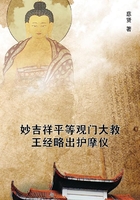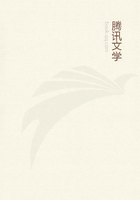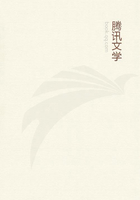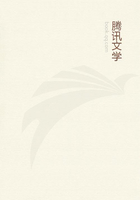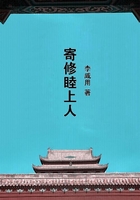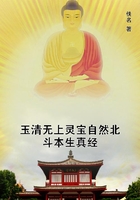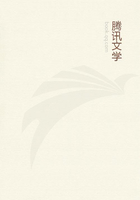On July 30,1718, Penn died at the age of seventy-four.His widow became proprietor of the province, probably the only woman who ever became feudal proprietor of such an immense domain.She appointed excellent deputy governors and ruled with success for eight years until her death in 1726.In her time the ocean was free from enemy cruisers, and the trade of the colony grew so rapidly that the increasing sales of land and quitrents soon enabled her to pay off the mortgage on the province and all the rest of her husband's debts.It was sad that Penn did not live to see that day, which he had so hoped for in his last years, when, with ocean commerce free from depredations, the increasing money returns from his province would obviate all necessity of selling the government to the Crown.
With all debts paid and prosperity increasing, Penn's sons became very rich men.Death had reduced the children to three--John, Thomas, and Richard.Of these, Thomas became what may be called the managing proprietor, and the others were seldom heard of.
Thomas lived in the colony nine years--1732 to 1741-- studying its affairs and sitting as a member of the Council.For over forty years he was looked upon as the proprietor.In fact, he directed the great province for almost as long a time as his father had managed it.But he was so totally unlike his father that it is difficult to find the slightest resemblance in feature or in mind.He was not in the least disposed to proclaim or argue about religion.Like the rest of his family, he left the Quakers and joined the Church of England, a natural evolution in the case of many Quakers.He was a prosperous, accomplished, sensible, cool-headed gentleman, by no means without ability, but without any inclination for setting the world on fire.He was a careful, economical man of business, which is more than can be said of his distinguished father.He saw no visions and cared nothing for grand speculations.
Thomas Penn, however, had his troubles and disputes with the Assembly.They thought him narrow and close.Perhaps he was.That was the opinion of him held by Franklin, who led the anti-proprietary party.But at the same time some consideration must be given to the position in which Penn found himself.He had on his hands an empire, rich, fertile, and inhabited by liberty-loving Anglo-Saxons and by passive Germans.He had to collect from their land the purchase money and quitrents rapidly rolling up in value with the increase of population into millions of pounds sterling, for which he was responsible to his relatives.At the same time he had to influence the politics of the province, approve or reject laws in such a way that his family interest would be protected from attack or attempted confiscation, keep the British Crown satisfied, and see that the liberties of the colonists were not impaired and that the people were kept contented.
It was not an easy task even for a clear-headed man like Thomas Penn.He had to arrange for treaties with the Indians and for the purchase of their lands in accordance with the humane ideas of his father and in the face of the Scotch-Irish thirst for Indian blood and the French desire to turn the savages loose upon the Anglo-Saxon settlements.He had to fight through the boundary disputes with Connecticut, Maryland, and Virginia, which threatened to reduce his empire to a mere strip of land containing neither Philadelphia nor Pittsburgh.The controversy with Connecticut lasted throughout the colonial period and was not definitely settled till the close of the Revolution.The charter of Connecticut granted by the British Crown extended the colony westward to the Pacific Ocean and cut off the northern half of the tract afterwards granted to William Penn.In pursuance of what they believed to be their rights, the Connecticut people settled in the beautiful valley of Wyoming.
They were thereupon ejected by force by the proprietors of Pennsylvania; but they returned, only to be ejected again and again in a petty warfare carried on for many years.In the summer of 1778, the people of the valley were massacred by the Iroquois Indians.The history of this Connecticut boundary dispute fills volumes.So does the boundary dispute with Maryland, which also lasted throughout the colonial period; the dispute with Virginia over the site of Pittsburgh is not so voluminous.All these controversies Thomas Penn conducted with eminent skill, inexhaustible patience, and complete success.For this achievement the State owes him a debt of gratitude.
Thomas Penn was in the extraordinary position of having to govern as a feudal lord what was virtually a modern community.He was exercising feudal powers three hundred years after all the reasons for the feudal system had ceased to exist; and he was exercising those powers and acquiring by them vast wealth from a people in a new and wild country whose convictions, both civil and religious, were entirely opposed to anything like the feudal system.It must certainly be put down as something to his credit that he succeeded so well as to retain control both of the political government and his family's increasing wealth down to the time of the Revolution and that he gave on the whole so little offense to a high-strung people that in the Revolution they allowed his family to retain a large part of their land and paid them liberally for what was confiscated.
The wealth which came to the three brothers they spent after the manner of the time in country life.John and Richard do not appear to have had remarkable country seats.But Thomas purchased in 1760 the fine English estate of Stoke Park, which had belonged to Sir Christopher Hatton of Queen Elizabeth's time, to Lord Coke, and later to the Cobham family.Thomas's son John, grandson of the founder, greatly enlarged and beautified the place and far down into the nineteenth century it was one of the notable country seats of England.This John Penn also built another country place called Pennsylvania Castle, equally picturesque and interesting, on the Isle of Portland, of which he was Governor.

